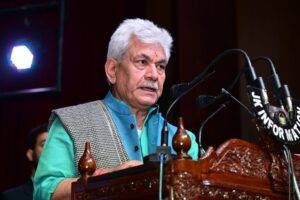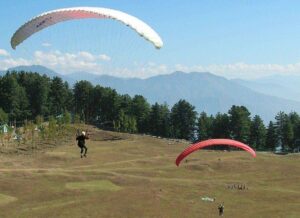Last Updated on November 6, 2021 at 2:38 pm
Keeping a century old tryst with the Kashmir Valley, migratory birds in thousands have started arriving here from European and other western countries.
Wildlife officials said that prevailing day and night temperatures in parts of Kashmir are proving to be suitable for these migratory avians. In order to escape the harsh winter months of other countries birds have started migrating for the relatively less harsh cold of Kashmir.
These hardy souls fly from Siberia, North-China, Philippines and North Europe to ward-off the extreme cold of their summer homes for their transitory habitat, Kashmir.
Officials informed that the winged visitors start arriving in Kashmir towards the mid of October as the valley gives them a comparatively hospitable alternate habitat compared to the extreme freezing conditions in their natural habitats in Siberia, China, Japan and other countries in the northern hemisphere.
Most sighted birds are Tufted Duck, Gadwall, Brahminy Duck, Garganey, Greylag Goose, Mallard, Common Merganser, Northern Pintail, Common Pochard, Ferruginous Pochard, Red-Crested Pochard, Ruddy Shelduck, Northern Shoveler, Common Teal and Eurasian Wigeon.
The visiting bird species stay in the wetlands of Kashmir for five months, from early November to March before leaving to their respective regions.
Warden Wetlands, Ifshan Dewan said that a huge number of migratory birds arrival is expected this year.
For their arrival, Dewan said that the Wildlife department has taken several measures to maintain sufficient water level in all the wetlands of the valley.
Dewan said that due to poaching during the past few years has caused a reason to worry but during the recent past, since the arrival of these migratory birds the field staff of the department has increased their vigil reducing the poaching threat. He further added that they have increased their vigil, and are conducting regular checks around these wetlands to check the illegal hunting of these birds, adding that they have formed squads to stop this illegal practice of killing migratory birds.



